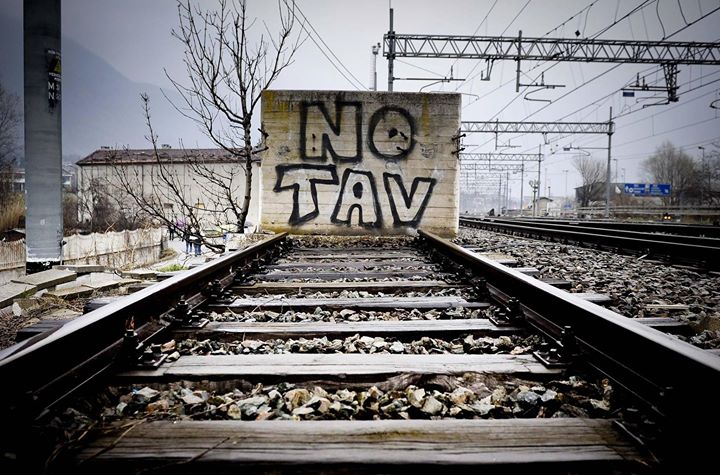
- Diese Veranstaltung hat bereits stattgefunden.
Discussion: Shut down the Logistics of Capital – but how?

+++ ENGLISH BELOW +++
Der G20-Gipfel rückt näher – neben den altbekannten „Verteidigern der freien Welt“ (Obama) aka Verwalter*innen des desaströsen neoliberalen „Weiter so“ wie Merkel und Macron werden auch andere, aber nicht bessere Kaliber wie Trump, Erdoğan, Modi, al-Aziz und Putin anreisen – selten war die Quote offen autoritär bzw. despotisch auftretender Gipfelteilnehmer*innen so hoch. Nicht zuletzt diese Zusammensetzung in diesen krisenhaften Zeiten macht den Gipfel brisant und liefert genug Gründe, den Staatschefs und Konsorten ein kraftvolles „Fuck you“ entgegenzuhalten.
Dennoch mobilisiert das kommunistische …ums Ganze!-Bündnis nicht nur an die Zäune der Mächtigen, sondern auch zum Hamburger Hafen, Deutschlands „Tor zur Welt“, wie er den Staatschefs am Juli-Wochenende stolz präsentiert wird. Unter dem Slogan „Shut down the Logistics of Capital“ soll das Kapital da getroffen werden, wo es wirklich weh tut: in seiner Logistik.
Doch wie soll diese Logistik lahmgelegt werden, mit wem und mit welchen Mitteln? Außerhalb Deutschlands von Brasilien bis den USA, aber auch hier bspw. im Zuge der Mobilisierung gegen den Castor-Transport, gibt es schon seit Jahren Diskussionen um die richtige (militante) Praxis gegen die Logistik. Auch strategische und inhaltliche Fragen spielen eine große Rolle. Wen soll die Unterbrechung der Logistik treffen? Die Herrschenden? Oder Alle? Wollen wir einen sozialen Streik? Die Unterbrechung des Alltags?
Die Aktion im Hafen ist ein Auftakt, um die Debatte der strategischen Ausrichtung der radikalen Linken in Deutschland neu zu führen: von einer mitunter eindimensionalen Kritik der (illegitimen) politischen Repräsentation hin zu einer Auseinandersetzung mit der komplexen politisch-ökonomischen Infrastruktur unserer Gesellschaft und der Entwicklung von Gegenvisionen. „Die Macht liegt nunmehr in den Infrastrukturen dieser Welt,“ schreibt das Unsichtbare Komitee. Stimmt das denn wirklich? Und was heißt das dann für uns?
Wir möchten mit Aktivst*innen aus Italien diese Fragen diskutieren. Sie sind seit Jahren auf unterschiedlichen Ebenen mit dem Angriff auf die kapitalistische Logistik beschäftigt, z.B. bei No TAV oder den Logistikarbeiter*innen Streiks in Bologna.
___________________________________
The G20-summit is approaching, and alongside the well-known „defenders of the free world“ (Obama) aka administrators of the desastrous neoliberal „business as usual“ like Merkel and Macron we can expect some different, but no less unpleasant, leaders like Trump, Erdoğan, Modi, Al-Aziz and Putin. The number of openly authoritarian or despotic summit-participants has not been that high for a long time. It is this summit-composition in these crisis-hit times which makes the summit a hot topic and reason enough to keep a big and vital “fuck you” towards the heads of state and their entourage.
Nonetheless, the communist …ums Ganze!-Bündnis will not only mobilise outside the walls built to protect the powerful, but also at the port of Hamburg, Germany’s “gate to the world”. Under the slogan “Shut down the Logistics of Capital”, we will hit capital where it hurts: in its logistics.
But how can logistics be shut down? With whom, and by which means? In the mobilisations against the shipment of nuclear waste to Castor, and further afield outside Germany, in Brasil or the USA, discussion have been had about the right (militant) praxis against logistics. But strategic and analytical questions also play an important role. Who should be affected by the interruption of capitalist logistics? The powerful? Everyone? Do we want the social strike? The interruption of daily life?
The action in Hamburg harbour during the summit should be consideredd as an opening to discuss the radical left’s direction and its perspectives in Germany, considering the dynamics of the current conditions we face; shifting the focus of an occasionally one-dimensional critique of the (illegitimate) political representation to dealing with the complex political-economical infrastructure of our society and our counter-visions. “Power now resides in the infrastructures of this world”, write the Invisible Committee. Is that really true? If yes, what does that mean for us?
We will discuss these questions with activists from Italy. They have been involved in tackling capitalism’s logistics for many years on many levels, in both the No-TAV-movement or the strike of workers in the logistics-sector in Italy.







